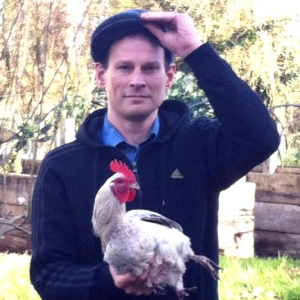 County Kildare, Ireland. A couple I know – we’ll call them Bob and Nancy — lived in a century-old house in the middle of their town, a few miles from their jobs and surrounded by long-time neighbours. When the last of their children left home, they announced it was time they looked for a bigger house.
County Kildare, Ireland. A couple I know – we’ll call them Bob and Nancy — lived in a century-old house in the middle of their town, a few miles from their jobs and surrounded by long-time neighbours. When the last of their children left home, they announced it was time they looked for a bigger house.
“Do you mean a smaller house?” I asked.
“No,” they said, surprised. “We mean a bigger house.” They had some extra money now that they were not raising children, and they wanted to invest it for retirement.
Their later years, however, did not turn out as relaxing as they had hoped. Both husband and wife had to work full-time to pay for their massive new house, and their few free hours were spent on the monumental task of cleaning and maintaining it. They gave their old house to their son and his wife, who worked all day to pay for that house’s mortgage and maintenance. The son’s child – my friend’s grandson — was put into day care while parents and grandparents worked long hours. Reading between the lines, I gathered that they ate on the run, often felt ill and depressed, and rarely saw their families.
It was not my business how they lived, and maybe there was more to the story – leaky roof, neighbourhood conflict, who knows. As far as I could tell, though, they had neatly divided an obvious solution into several costly problems.
If they had stayed in their old home with their son, they could have all pitched in to maintain and pay for it. No one would be under as much pressure to spend their lives at work, leaving time to live the life they wanted. If someone lost their job in this depression, others could fill the gap. A crash in housing values wouldn’t have mattered much if everyone was free from financial pressure and no one was going anywhere.
With more time available and less pressure, some people in the house could have spent time growing their own food or preserving it – crafts that most families once practiced together, and whose instruction was passed down through the generations, and which would make them even less vulnerable to a financial crisis. The family could raise or even home-school the grandchild, rather than pay exorbitant sums to see him raised by strangers.
I talk often with elderly relatives and neighbours from Missouri, Germany and Ireland. They all grew up in different worlds; a farm, an urban tenement, or the ruins of a bombed city. Ask them what has changed, though, and the answer is always the same: the ubiquitous presence of family and community.
Almost all these elders grew up with grandparents and relatives in the home or nearby, as most people did until the mid-20th century. Harvesting the garden, drying or pickling food for the winter, fixing the property, praying in church – all these were done as a unit, with children mimicking the adults. Even in urban families where most people worked, at least one relative usually stayed home to cook meals and keep house, and families ate together, sang or played cards together, shared beds or rooms.
The web of connections extended beyond the family – neighbours knew each other as a matter of course, on many levels. It sounds similar to the way people know each other in the Irish countryside where we live: the person in front of you in the Sunday pew might also be a business client, and might also trade their extra eggs for your vegetables, and might also coach the local boys’ football team. Relationships can be tense or self-serving, but they run deep, and they temper people’s reactions in a conflict.
Most elders say they found work through cousins or grandparents, and their jobs as builders or farmers or clerks were spent amid many others doing the same thing, rather than sitting in adjacent cubicles, receiving identical spam about teamwork. They may have made a fraction of the money as America’s desperately poor today, but did not feel poverty in the same way, for their lives were not spent drifting through a sea of strangers.
Such a life would be as healthy now: consider the stereotypes of various ages, and how neatly the often-maddening qualities of each age are meant to complement each other. Children bombard adults with questions about the world – who we are, where we came from, how things work. Many young adults are hungry for experience and advancement in life. New parents often feel bewildered by the task of raising children, and young mothers left at home often feel lonely and isolated. Elderly people often want company and a chance to pass on their memories. Passion and restraint, questions and answers, energy and experience – they are like jigsaw pieces waiting to be assembled.
Inside the cheap energy window of the last few decades, however, family members were expected to live in isolation, first as a “nuclear family” and then as individual consumers. More and more households saw both parents go to work, more children were warehoused in day cares and schools, more people struggled to pay for escalating mortgages and day care expenses.
Of course, many people then as now were undereducated, and some may have found their close horizons stifling – we are lucky today to live in an era where we can travel so freely and instantly contact others around the world. But the depth of real-world community should not preclude the breadth of online learning, but balance and ground it. No amount of Twittering can build a relationship with the old lady down the road, and no amount of online eco-activism can substitute for physically pollarding one’s own trees.
Moreover, everyone’s situation is different. Maybe you live far away from any family. Maybe you struggle to tolerate each other even for short reunions, and maybe there are good reasons for that. Not everyone can pick up and move, and certainly senile or mentally handicapped relatives might require care beyond most of our abilities.
Moving in together also creates its own drama, especially for the unaccustomed. I know from our experience, living in a home with a grandparent, that everyone has different standards of cleanliness, different philosophies of child-rearing and cooking, and that everyone needs their own space sometimes. All these things happen in the single dimension of marriage, and each new presence under one roof multiplies the potential exponentially.
But enough lines can also make a safety net, as more hands mean more division of labour, more likelihood that there will be an experienced cook or gardener in the family, a high-income breadwinner, someone with a car or a needed skill, someone who can tell stories or play music at the end of the day.
More of us will find ourselves doing this, for several reasons. More unemployment means more people who need help paying the mortgage or the rent. Foreclosures have already forced many people to migrate, and loved ones are generally preferable to a shantytown behind the Taco Bell parking lot. Less energy will mean less unnecessary transportation, and a changing climate – wildfires in the west, Mississippi floods, Dixie hurricanes – will make more migration necessary. Smaller families and aging Baby Boomers mean more elderly relatives who might prefer to live with family rather than ailing inhabitants of a nursing home.
An emergency, though, is the worst possible occasion to throw people unexpectedly under the same roof. Tragedies are difficult enough when the rest of life remains constant, and can be intolerable when one’s comforts and privacy are torn away. We are better off easing into the experience – growing accustomed to the new grocery lists, the new sleeping arrangements and schedules, the new boundaries of modesty and conversation. We would all be better off preparing for roommates now, shedding our embarrassment at moving in with our parents or children, and adapting at a speed that is comfortable for everyone.
This is likely to be the new face of our future: a hundred million small and simple changes to reduce our debt and isolation, to cope with less money and weird weather, to consolidate our possessions and needs. We might have to shed our load of rootless consumerism, but we might also rediscover what it means to be part of something. For some people, who have spent their lives searching for connection and meaning, it will be like coming home for the first time.
—–
Brian Kaller is a former newspaper editor from Missouri and now lives in rural Ireland with his family. He continues to write freelance articles, published in the American Conservative, his local newspaper, and his blog, http://www.restoringmayberry.blogspot.com.




11 comments
David_notascynical
How does “leave and cleave” enter into our discussion on the topic of multi-generational housing? It is something I keep running into and cannot quite get a grasp on.
Josh
Brian:
Glad to see you here. I read your blog from time to time and always enjoy it. I am curious about what part of Missouri you are from? I am from Osceola, MO, about an hour north of Springfield. I went East for college, south for law school, lived in Houston, TX for 10 years and then moved back home to Osceola.
Josh
Siarlys Jenkins
It is time to recognize that someone needs to be at home, or there won’t be a home, and everyone needs to be home some of the time, or they don’t have a home. Now, try explaining that to the voracious masters of the cubicles, who are still acting like “your job comes first.” No, when I have a job, it is one part of my life. It is not the most important, nor is it the center of my life. If I’m lucky it is one of the good parts of life, but it is never central. Oh, and let’s remember, when you get down to actually doing canning, it is hard work. It may be picturesque to remember mom doing canning while we ran around playing because we were too young to help, and it may be nice to kick back and relax when the peaches and green tomatoes are on the shelf, but in between, its work. Good work, but let’s not confuse it with a vacation.
Will
Last year I spent the night with my family in a farmhouse in rural Kildare. The following morning, we were outside with the owners looking across the land, and asked about a brand new house about a mile across the fields.
“Oh yes,” said the farmer’s wife, beaming, “that’s our daughters house. No one builds small houses in Ireland anymore.”
The farmhouse we were staying in had five bedrooms as it was, and the couple only had two children, as far as I could tell. I hope it’s worked out for them.
D.W. Sabin
Ditto on Christopher Alexander……
Oh to still have a parent around to bother you…..but, Junior is back in town, fresh with a degree and so the old man employs him until he can get on “his feet” and find a job in a “hipper” locale so now I must suffer the damnable insult of he and his mother “organizing” La Cave de la Obstrepereppi so that it might be made “presentable” and, hello, the final perfidious straw: “Cheerful”.
Personally, I find cigars, assorted rock specimens, dust, the vintage little smiling and chewed Barney Chair the dog used to fit in, the snoring dog, untold stacks of paper in various dishabille, a machete, a Black Velvet Mexican Sombrero, assorted bird nests and my fine little ceramic statue ( depicted in a bracing little film short by the daughter when she negotiated it out of a Shanghai Antique Dealer) of Mao sitting in a rattan chair and smoking a hand-rolled to be quite cheerful enough thank you. Right now, I’d take the potato famine on a rock in blackest of Black Irish Cork over this importunate infringement upon my withered dignity.
But, how lovely to have noise again. It is amazing the music I’ve been missing since they have been away. Not to mention the fact that there is now a Greek Chorus informing me how incapable and mad I am instead of the solo act that had gotten a little run down and therefore, tending a tad too much toward bathos. The young bring new approaches to this important function.
Still, I cannot wait for the day when one of the ingrates shall produce a few sports and I can show up when they are 13 with a trampoline, a case of Sugar Daddies, some cigarettes and a bottle of peppermint schnapps.
James Matthew Wilson
As Brian probably knows, Nuala O’Faolain published an article in the Irish Times about seven years ago on the socially destructive consequences of Irish grandparents retiring to Ibitha, etc. While they go off to the land of sun and preserved health, they undermine the economy by necessitating professional childcare. But the loss for Americans is even greater: grandparents at home is the human practice of which social security is a withering mockery. Since that particular mockery won’t be around much longer, I fully expect my children to repay my present hospitality with theirs in the future — as we together curse the generations for whose excess we’ll (still) be paying . . .
Cecelia
iw – weather has been prompting migration since humans discovered they could walk.
Abstractly, intergenrational living makes a lot of sense – but then you remember how annoying your mom can be about some things!
I suspect we will see an increase in these sorts of living arrangements when economic necessity pushes people into it. I think these sorts of arrangements – if people can get along – take a lot of stress off the middle generations – those who are parenting now.
James Matthew Wilson
Thanks, and, yes. The multi-generational home recommends itself for its practicality, and its practicality partially explains why it is the true type of the family. Anything else — the nuclear family, the contractual consumers eating and copulating on the rough road to divorce and new “arrangements — is a defective or decayed form of the family; these modern phenomena, contrary to contemporary assumptions, are marks of barbarism not civilization.
Steve Gordan
You are right, In urban families most people work in a family and one person usually stay at home to cook meals and keep house, and families ate together.
TN
Excellent piece! If you haven’t come across it yet, I think you’d enjoy the work of Christopher Alexander, particularly his landmark book, “A Pattern Language.” In his book, he describes several ‘patterns’ that are common to places that are ‘alive’. One of the patterns is the granddaddy house (not the name Alexander uses), a cottage where a grandparent/s could live. I highly recommend his work: from an FPR perspective, it has much to commend itself.
iw
“wildfires in the west, Mississippi floods, Dixie hurricanes ” nope, these things have been with us since time began. Blaming the environment for migration is irresponsible. We do escape because of urban blight and changing demographics. Whether or not you like it, the truth is (especially in Dallas) that Blacks displace Whites, Mexicans displace Blacks and then the cycle starts all over again. Where will all this end, when the last lot in Pecos is sold?
Comments are closed.